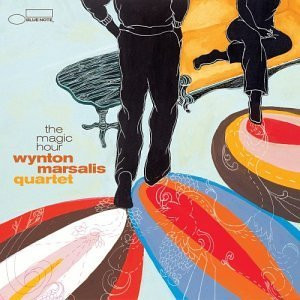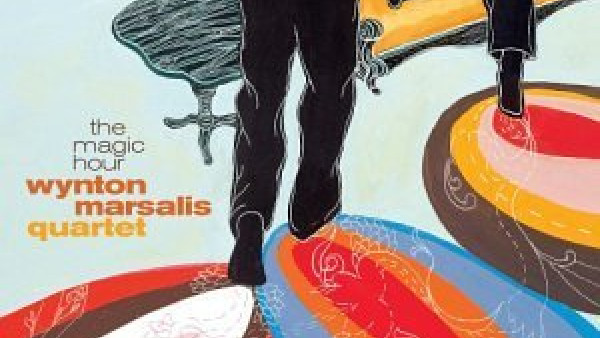Marsalis hinting at introspective change of pace
Chicagoans have heard trumpeter Wynton Marsalis fronting all manner of ensembles, from the choral-orchestral forces that performed his oratorio “Blood on the Fields” to the radiant septet that played his devotional instrumental suite “In This House, On This Morning.”
But the group he brought to Orchestra Hall on Sunday evening represented something different, a lithe, exquisitely subtle new quintet that proved more transparent in texture and delicate in sensibility than listeners might have come to expect from Marsalis bands. Though many signatures of his trumpet playing remain unmistakable—including an impeccable technique, expert use of mutes and ineffably gauzy long-held notes—the musical setting that surrounds his solos has changed with this quintet.
If Sunday night’s performance foreshadowed Marsalis’ forthcoming quintet debut on Blue Note Records (after two decades on Columbia), we can expect to hear a more intimate side.
Judging by the 90-minute set he played before a large and enthusiastic audience, Marsalis wisely may have decided to give his listeners a change of musical pace. For in addition to touring relentlessly with the Lincoln Center Jazz Orchestra, he has composed and performed so much music on a grand scale during the past several years that a side trip into more introspective terrain may be apropos.
For starters, the quintet affords Marsalis greater opportunity to solo than when he’s leading larger ensembles, and it was a pleasure to hear him playing so much. The clarion lines and idiosyncratic yowls that he coaxed from his trumpet on “Free to Be,” the harmon-muted riffs and soft-shoe rhythms he dispatched on “Me and You” and the gorgeously lyric phrases he unfurled on “Comes Love” reminded one of how much Marsalis has to say as soloist.
But his quintet has a great deal to recommend it, as well, its softly shaded dynamics and quasi-classical approach to harmony representing a vivid contrast to the muscular, blues-tinged flavor of his famous septet. In works such as Marsalis’ whimsical “Big Fat Hen” and his more substantial “Skipping,” his band proved well-versed in the lessons of Stravinsky and Debussy.
Pianist Eric Lewis ventured unusual voicings at opposite ends of the keyboard; bassist Carlos Henriquez was especially compelling when softly singing along with his bowed and plucked passages; drummer Ali Jackson excelled at a less-is-more approach to swing rhythm; and reedist Wess Anderson produced the vivid, steeped-in-blues lines for which he is widely admired.
If much of this music hinted at children’s themes, the evening’s culminating work, The Magic Hour, explicitly addressed the young at heart. Marsalis described the brief suite as a portrait of youngsters preparing to go to sleep, and it wasn’t difficult to recognize the frenzy of children trying to avoid bedtime before eventually giving way to a sweet, gentle lullaby expressed in jazz-blues vernacular.


